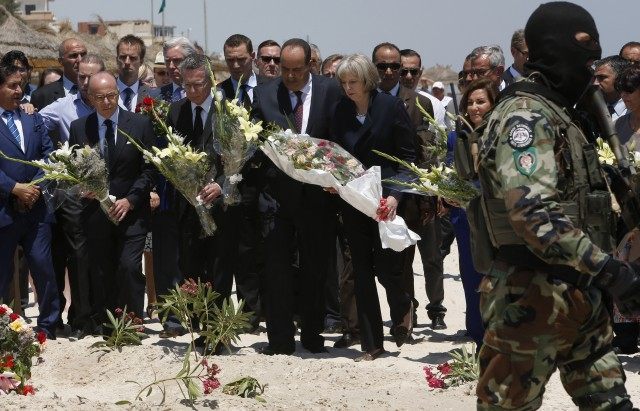Britain is partly responsible for terrorist activity in Tunisia because it created lawless chaos in neighbouring Libya, the Tunisian Prime Minister has said.
Habib Essid blamed the Western intervention that brought down Muammar Gadaffi in 2011 for destabilising the region and leaving Tunisia vulnerable to terror attacks like that one at Sousse this year, which left 30 British tourists dead.
Joining the growing chorus of criticism over intervention in Libya, Essid told The Independent that Britain and France – which led the airstrikes – had been “part of the problem” and that “they have responsibility.”
“Terrorism has not borders,” he added.
Essid added, however, that he was against any further intervention in Libya, which would only cause more chaos. He called, instead, for a “political solution”.
Thirty-eight people died in June’s terror attack at Sousse when a gunman took to the beach and opened fire at sunbathing tourists. Islamic State claimed responsibility for the massacre while the Tunisian government confirmed the gunman had trained at jihadist camp in Libya.
Saif Rezgui, who was killed by police after the rampage, trained in Libya at the same time as the two gunman who attacked the Tunis Bardo museum in March, a spokesman for the Prime Minister said.
Despite the terror attacks, Tunisia has emerged comparatively well from the so-called “Arab Spring”. It is the only country involved in the 2011 uprisings to have maintained a democracy, after the overthrow of dictator Zine El Abidine Ben Ali.
Other nations have not fared so well. Although neighbouring Libya saw the overthrow of Muammar Gadaffi, its new democratic regime struggled to keep hold on the country and soon lost swathes of territory to the various Islamist militants.
Islamic State, who emerged from the chaos in Syria, have now established a foothold in Libya, mainly in and around the city of Sirte.

COMMENTS
Please let us know if you're having issues with commenting.